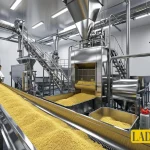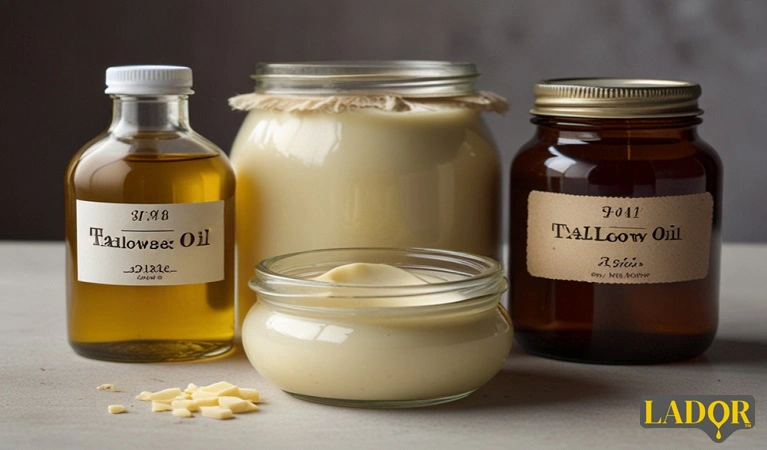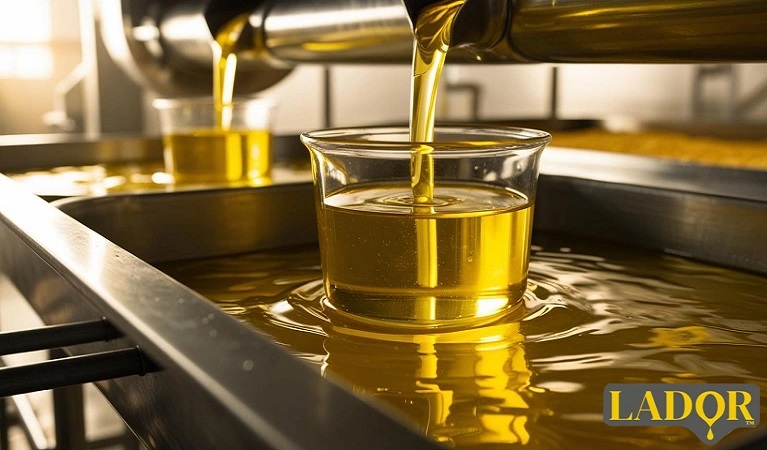

Tallow fatty acid , a byproduct of the meat processing industry, has emerged as a promising alternative to traditional fossil fuels. Extracted from animal fat, primarily beef and mutton, this renewable resource offers a sustainable, and environmentally friendly solution to energy needs. This article delves into the various aspects of tallow oil, including its chemical composition, uses, advantages, disadvantages, and potential future applications.
Tallow fatty acid is extracted from the hard, white fat surrounding the internal organs of an animal, such as the heart, liver, and especially the loin and kidneys.
This acid is primarily composed of triglycerides, which are esters of glycerol and fatty acids. The fatty acid profile of tallow oil varies depending on the animal species and diet. However, it typically contains a high proportion of saturated fatty acids, such as stearic and palmitic acids. These saturated fats contribute to the high energy content of tallow oil.
The versatility of tallow oil has led to its application in a wide range of industries:
Tallow fatty acid is a common feedstock for biodiesel production. When transesterified with an alcohol, such as methanol or ethanol, tallow oil yields biodiesel, a clean-burning alternative to diesel fuel. Biodiesel derived from tallow oil has a lower carbon footprint than traditional diesel fuel and can be used in most diesel engines without modifications.
Tallow fatty acid can be refined into lubricants for various industrial applications. Its high viscosity and excellent lubricating properties make it suitable for use in machinery, hydraulic systems, and metalworking processes.
Tallow fatty acid can be blended with other fuels, such as gasoline or diesel, to improve their energy content and reduce emissions. Blending tallow oil with traditional fuels can help to reduce dependence on fossil fuels and promote a more sustainable energy mix.
This acid has a variety of industrial applications, including the production of soaps, candles, and leather tanning.

This acid offers several advantages over traditional fossil fuels:
This acid is a renewable resource derived from animal fat. Unlike fossil fuels, which are finite resources, tallow oil can be replenished through livestock production.
Burning tallow oil produces significantly lower levels of greenhouse gas emissions compared to fossil fuels. This makes tallow oil a more environmentally friendly option for energy generation.
Tallow fatty acid has a high energy density, similar to fossil fuels. This means that it can provide a significant amount of energy per unit volume.
Despite its many advantages, Tallow fatty acid also has some disadvantages:
Environmental Concerns: Some environmental groups have raised concerns about the ethical implications of using animal fat for fuel production. These concerns relate to animal welfare, land use, and water pollution associated with livestock farming.
Seasonal Availability: The availability of tallow acid can fluctuate seasonally, depending on the timing of livestock slaughter. This can make it challenging to ensure a consistent supply of fuel.
Competition with the Food Industry: The use of tallow oil for fuel production can compete with its use in the food industry. This can lead to higher food prices and potential shortages of animal fat for food applications.
Tallow fatty acid has the potential to play a significant role in the transition to a more sustainable energy future. As research and development continue, new applications and improved production methods may emerge.

Tallow’s fatty acid composition includes saturated fatty acids such as myristic, palmitic, and stearic acids and unsaturated fatty acids like palmitoleic, oleic, and linoleic acids. Refined tallow is obtained from the fat of animals such as cows and sheep.
With complete equipment and experienced experts, Ladorfat has produced and distributed the best livestock and poultry feed such as soybean oil, tallow oil, fatty acid, calcium fat powder, raw materials for duck feeding, etc. Contact our experts for advice and price inquiries.